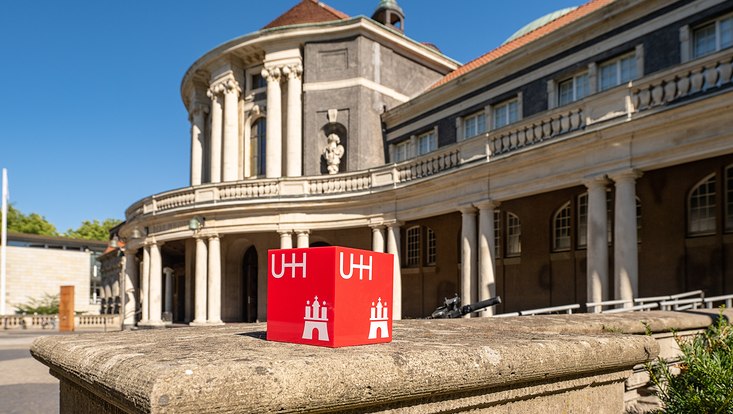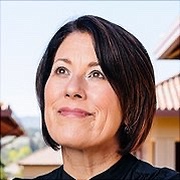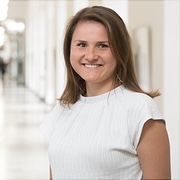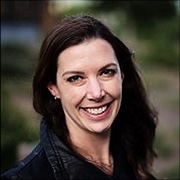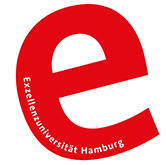The 20th SCANCOR PhD Workshop and Public Morning Lectures on Institutional Analysis
This year’s SCANCOR PhD Workshop on Institutional Analysis will be hosted by the University of Hamburg in collaboration with the University of Mannheim.
Join the daily public morning lectures on institutional analysis.
26th-30th August 2024
University of Hamburg
Daily 09:00 AM - 12:30 PM
International as well as local faculty present and discuss recent research broadly within the field of institutional theory. At the 20th SCANCOR PhD workshop on Institutional Analysis, international faculty will present recent and ongoing research, discuss the current state of institutional theory, and suggest future directions and methodological tools that deepen the institutional agenda. Special attention is given to contemporary social, political, and economic challenges as well as challenges of theorizing to understand institutional change. We approach these challenges from a wide range of theoretical lenses including temporal dynamics, power, world society, and social movement theory.
Public Morning Lecture
Monday, Augst 26th
Civic Life Reexamined: How Do Organizational Practices Influence Participation?
Walter W. Powell, Stanford University
with Yi Zhao, University of New South Wales and Qian Wei, Wilfrid Laurier University
We examine the diverse participatory styles of civic organizations in the San Francisco Bay Area, analyzing how these groups engage both internal staff and external stakeholders in their decision-making processes. Employing hierarchical cluster analysis on a random sample of 300 nonprofit organizations, we identify four distinct participatory styles— which we label as Parliament, Guild, Collective, and Dream. Each style demonstrates distinct patterns of engagement in organizational tasks. Through network filtration analysis, we analyze the coherence of relationships among organizational practices, uncovering the foundational elements of these participatory styles. The Parliament style merges professional management with inclusive decision-making; the Guild style upholds a traditional civic ethos with robust volunteer involvement. The Collective style blends professionalism with volunteerism, and the Dream style features centralized leadership and restricted organizational involvement. Our findings offer deeper insights into the role of civic organizations in shaping social and political landscapes, emphasizing that active participation acts as a "muscle memory" of democracy, vital for nurturing civic virtues. We posit that civic life is actively constructed through participatory engagement, reflecting a complex interplay both within and between organizations.
To register for the lecture, please click here
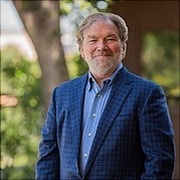
Woody Powell is Jacks Family Professor of Education, and Professor of Sociology, Organizational Behavior, Management Science and Engineering, and Communication at Stanford University, and a faculty fellow at the Center for Advanced Study in the Behavioral Sciences. He was a founding co-director of the Stanford Center on Philanthropy and Civil Society in 2006. more...
Do We Need Institutional Macroscopes for Climate Science?
Achim Oberg, University of Hamburg
with Lars Feuerlein, University of Hamburg
To register for the lecture, please click here

Achim Oberg studied Business Informatics at the University of Mannheim and the University of St. Gallen, and completed his doctoral studies in Organizational Sociology at the Friedrich-Schiller-University Jena under the supervision of Prof. Dr. Peter Walgenbach (University of Jena) and Prof. Dr. Dr. h.c. Alfred Kieser (University of Mannheim). He conducted research and teaching at the University of Mannheim, KIT Karlsruhe, and RWTH Aachen. more...
Tuesday, August 27th
Practical Long-Termism: Beyond philosophy to practice
Bruce G. Carruthers, Northwestern University
Public policy in relation to climate change requires people to consider future costs and benefits, and to bring the future into the present. Given the seriousness of the climate problem, people have to weigh circumstances and consequences far beyond their own life-times and those of their children. But as Keynes pointed out, in the long run we are all dead, so why worry about the future? Most public policy now incorporates future costs and benefits in decision-making using a discount rate to calculate net present value. A high rate means that the future is unimportant; a low rate means that the future matters a lot. Thus, debate centers around the appropriate discount rate, and “longtermist” philosophers argue that discount rates should be set to zero. I develop an institutional perspective that augments current formulaic approaches by documenting instances of social arrangements where decision-makers have successfully included the interests of future generations and have, in effect, ignored Keynes about the long run. I consider several historical examples, including both successes and failures, to discern their common elements, motivating justifications, underlying patterns, and the critical role played by fiduciaries. These examples include early modern forestry management, construction of gothic cathedrals, nuclear waste depositories, family trusts and estate planning, and conservation easements.
To register for the lecture, please click here
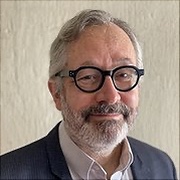
Bruce G. Carruthers is the John D. MacArthur Professor of Sociology at Northwestern University and a Long-term Fellow at the Swedish Collegium for Advanced Study. He received his PhD from the University of Chicago in 1991 and works in the areas of economic sociology, comparative-historical sociology, comparative-historical sociology, and the sociology of law, with research funding from the National Science Foundation, the American Bar Foundation, the Russell Sage Foundation, more...
Showcasing the university: museums and the publicness of academic knowledge
Gili S. Drori, The Hebrew University of Jerusalem
Universities worldwide decree their commitment to social engagement and impact. In their attempt to articulate this “4th academic mission” through engagement initiatives and units, universities overlook the university practice that was conceived centuries ago as an interstitial space between university and society and between expert- and lay knowledge, namely the university museum. This talk will bring an empirical analysis of the global and organizational aspects of the institutionalization and transformation of the university museum, to investigate patterns of university-society relations and of the university’s authority over knowledge creation and validation. The university museum, whose emergence is marked by the founding of Oxford University’s Ashmolean Museum in 1683, embodies the transformation of the university from a Medieval institution into an Enlightenment-era, scientific, and, importantly, public-oriented institution. Over the centuries since then, this boundary-spanning university unit was institutionalized, formalized, and globalized, resulting in thousands of university museums in hundreds of universities in over 80 countries worldwide. Triangulating among the concepts of global organization, organizational publicness, and academic knowledge, I argue that whereas the globalization of the university is regarded as intertwined with modernity and secularization, the global structuration of university museums is an expression of sanctification – of both knowledge (knowledge categories and displayable objects that embody scientific knowledge and confirm its validity) and publicness (access, openness, and accountability). The empirical study, which combined a global survey and 4 case studies, traces such patterns.
To register for the lecture, please click here
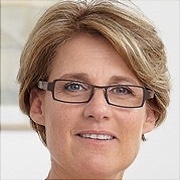
Gili S. Drori is professor of sociology and anthropology and since 2022 serves as Dean of the Faculty of Social Sciences at The Hebrew University of Jerusalem, Israel. Gili earned her academic education at Tel Aviv University (BA 1986; and MA 1989) and Stanford University (PhD, 1997, sociology). Before joining the faculty of The Hebrew University in 2011, Gili served as Director of IR Honors Program and taught at Stanford University for a decade. more...
Wednesday, August 28th
Collective Robust Action in the Face of Divisions and Marginality: An analysis of city resilience strategies
Renate E. Meyer, Vienna University of Economics and Business
with Doug Creed, Dennis Jancsary, and Markus Höllerer
This article investigates how cities address social division in their resilience strategies in ways that can facilitate collaboration among diverse stakeholders. Conceptually, we build on, and integrate, literatures on socio-political preconditions and robust action. At the core of our argument lies the paradoxical tension that robust action is needed to overcome legacies of division and marginalization as barriers to collaboration but that these legacies simultaneously impede capacities for robust action. Accordingly, cities need to represent and interpret their local socio-political preconditions in ways that empower and mobilize marginalized groups without triggering resistance from elites. We investigate these issues empirically by analyzing the resilience strategies of ten participants in the Rockefeller Foundation’s 100 Resilient Cities Network and find that cities acknowledge the detrimental effect of division and marginalization on collaboration and devise sophisticated rhetorical strategies to resolve the paradoxical tension. By theorizing their efforts as a form of “proto” robust action, our insights extend existing insights on robust action. We also contribute to research on collaborative urban governance in the face of grand challenges.
To register for the lecture, please click here
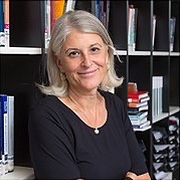
Renate E. Meyer is Professor of Organization Studies at WU Vienna University of Economics and Business. At WU Vienna, she is the Head of the Institute for Organization Studies and Co-Director of the Research Institute for Urban Management & Governance. Renate is also Part Time Professor in Institutional Theory at Copenhagen Business School and holds visiting positions at Saïd Business School, Oxford University, and University of Alberta. more...
When the Winner Can’t Take All: The Platformization of Industrial Production
Gernot Grabher, HafenCity University Hamburg
“Disruption!” – eulogized the business literature a few years ago and heralded yet another profound transformation of capitalist development. The relational governance that had given shape to the network economy allegedly was abruptly dislodged by a novel mode of algorithmic governance that ushered in the new phase of platform capitalism. Winner-takes-all markets, network effects and zero marginal costs were ritually asserted as the indisputable signs of the breakthrough of digital platforms. This line of reasoning, however, reflects the epistemological privilege of the sphere of consumption in the research on digital platforms that was fixated on its notorious harbingers (i.e. Uber and Airbnb). By shifting the focus from consumption to industrial production, this presentation moves attention from construing platforms as a distinct category to understanding the messy processes of platformization. And rather than simply adding a further category to the market-hierarchy-network trinity, the focus on platformization foregrounds a shift from the logic of commodification to practices of assetization. The business models of major manufacturers, as the example of John Deere shall elucidate, are no longer confined to selling equipment, but crucially involve the transformation of data into lucrative future income streams.To register for the lecture, please click here
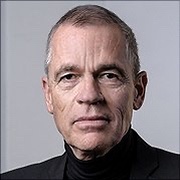
Gernot Grabher is Professor of Urban and Regional Economics and member of the Graduate Training School Urban Future-Making: Professional Agency across Time and Scale at the HafenCity University Hamburg (HCU). more...
Thursday, August 29th
In the Eyes of the Beholder: Corporate Calls to Action and Mobilization
Sarah A. Soule, Stanford University
While corporate activism in the United States may be waning in recent months, the past decade saw a notable uptick in corporate leaders wading into sociopolitical issues. These leaders frequently attempted to mobilize support for a given issue via public statements. What facets of these statements were associated with individual willingness to mobilize on behalf of the cause? Using a variety of different methods across several different social issues, we show that the alignment between a stakeholder’s political ideology and the issue at hand, the absence of hypocrisy in a statement, and the willingness of the leader to admit wrongdoing, were all associated with individual willingness to mobilize in support of the cause.
To register for the lecture, please click here
Sarah A. Soule is the Morgridge Professor of Organizational Behavior and the Sara Miller McCune Director of the Center for Advanced Study in Behavioral Sciences. Sarah’s research applies social movement theory to organizational processes, and organizational theory to social movement processes. For example, some of her research has looked at how social movements matter to organizational practice and policy change, net of the effects of diffusion. more...
When Fields Overlap: Relational and Symbolic Connections and Their Outcomes
Dominika Wruk, University of Mannheim
with Tino Schöllhorn, University of Mannheim, and Achim Oberg, University of Hamburg
In this this paper, we develop a framework categorizing various types of overlaps between organizational fields and the outcomes they promote. We explain how different amounts of linkages between members of two or more fields and varying degrees of cross-adoption of field-specific language lead to diverse outcomes: the traveling of ideas from one field to another; the emergence of new organizational practices, forms, and fields; and the broader diffusion of these concepts. Conceptually, we combine ideas about fields of organizations involved in debates and organizational fields of organizations interacting with each other. We argue that overlaps of relations and language are core antecedents of change processes at the field level. Methodologically, we suggest an approach for capturing and making sense of relational and language field overlaps using a chain of data science tools. Empirically, we illustrate our theoretical framework and method in the context of overlaps among three fields: the fields evolving around blockchain technology, the issues of cooperativism, and sharing. Our article contributes to current research by extending existing theories of what happens when different fields come into contact, focusing on relational overlaps and language overlaps as core elements of the structure of field overlaps.
To register for the lecture, please click here
Dominika Wruk is assistant professor for Sustainable Entrepreneurship at the University of Mannheim, Germany, where she also received her diploma in business administration and her doctorate. In her work she combines applies organizational theories to research questions that are relevant for society. In particular, she is interested how new organizational forms, business models and other social innovation emerge, diffuse and with what impact for society, economy, and the natural environment. more...
Friday, August 30th
Higher Education and Environmental Outcomes
Patricia Bromley, Stanford University
with Jared Furuta, Stanford University and Evan Schofer, University of California, Irvine
Countries around the world are taking initial steps to rein in environmental damage and build a more sustainable future. We consider the role of higher education in this critical global transformation. The expansion of higher education is often viewed simply as an extension of ordinary schooling, which adds human capital to the labor force. We argue that modern higher education systems have even more broad-based effects on people – and on society – than typically assumed. 1) Higher education transforms the populace, creating citizens that have greater trust in science and the professions, are able to understand complex problems such as climate change, and have the skills and orientations to support large-scale political organizing around issues such as climate change. Moreover, higher education credentials systematically place these people in elite positions of business and government. 2) Universities transform social structures: they create authoritative knowledge and expertise that identifies environmental problems and offers solutions (novel technologies, policy solutions, etc). They generate the knowledge base for social activity related to sustainability, producing non-governmental organizations and environmental policies that are part of a global environmental movement. 3) Universities are hubs that integrate countries into global networks and flows of knowledge, ideas, and norms. This greatly facilitates the spread of ideas and policy reforms around the globe, and supports international cooperation and coordination. We explore the implications of these claims with cross-national and longitudinal data on country environmental performance. We argue that the expansion of higher education – over and above other factors such as affluence – explains variation in country trajectories regarding pro-environmental organizing, environmental policy adoption, and indicators of country environmental pollution/damage. Arguments are explored with cross-national panel regression models in recent decades. We find that the growth of higher education is associated with country environmental sustainability. Associations are largest from policy adoption and renewable energy, but higher education is also associated with more environmental civic organizing, more forest area and less CO2 and NOX, and net of other factors. We conclude with reflections on the transformative role of universities in our modern globalized world.
To register for the lecture, please click here
Patricia Bromley is Associate Professor of Education, Environmental Social Science, and (by courtesy) Sociology at Stanford University. She is also Co-Director of Stanford’s Center on Philanthropy and Civil Society (PACS), and Director of the Scandinavian Consortium for Organizational Research (SCANCOR). Tricia’s research spans a range of fields including comparative education, organization theory, sociology of education, and public administration and policy. more...
Institutional Renewal: The Public Library in a Multimodal Perspective
Silviya Svejenova, Copenhagen Business School
with Eva Boxenbaum, Copenhagen Business School, Renate E. Meyer, Vienna University of Business and Economics, and Tammar Zilber, The Hebrew University of Jerusalem
Long-standing institutions, such as the public school, the public library, and the museum, have persisted for centuries by gradually adapting to changing societal circumstances. This gradual reimagining and adaptation can be conceptualized as institutional renewal. Institutional renewal is worthy of attention in as much as institutions risk becoming obsolete if they do not change at all, just as they risk erosion if they are adapted so much that they become indistinct from other established institutions. This talk focuses on public libraries, an institution that has succeeded in remaining relevant for society through centuries and is still broadly valued today. It traces institutional renewal empirically through insights from annual reports and videos with library stories of the New York Public Library, an exemplar public library, renewal initiatives at Danish public libraries, and new cutting-edge library buildings, such as Helsinki’s Oodi, Oslo's Deichman Bjørvika, Tilburg’s LocHal, or Barcelona’s Gabriel García Márquez library. The analysis reveals verbal, visual, and material changes in the public library’s identity, space, and place, as well as contestation. Based on the analysis, institutional renewal is theorized as a hybrid form of institutional disruption and maintenance.
To register for the lecture, please click here

Silviya Svejenova is Professor of Leadership and Innovation at the Department of Organization, Copenhagen Business School, and academic co-director of the CBS Leadership Centre and of imagine. Creative Industries and Institutions research centre. Silviya’s research examines questions about, among others, the expansion of new CXO roles, category emergence, more...
Registration
Please register to attend the SCANCOR morning lectures on Institutional Analysis. The lectures are open to the public and free of charge.
SCANCOR registration
Local Organizers
Prof. Dr. Achim Oberg
Professorship for Sociology with a focus on Digital Social Science
University of Hamburg
Germany
Email: sekretariat-dss.wiso"AT"uni-hamburg.de
Further information
Prof. Dr. Dominika Wruk
Professorship for Sustatinable Entrepreneurship
Universtity of Mannheim
Further information
Lars Feuerlein
Research Assistant
Sociology with a Focus on Digital Social Science
University of Hamburg
Email: lars.feuerlein"AT"uni-hamburg.de
Further information
Sandra Kirchberg
Foreign languages assistant
Secretariat Sociology with a Focus on Digital Social Science
University of Hamburg
Email: sekretariat-dss.wiso"AT"uni-hamburg.de
Tel.: +4940/42838-7806
Further information
Location
Edmund-Siemers-Allee 1, ESA W Room 221
Main campus and University main building's west wing (ESA W):
Train (S-Bahn):
The S2 and S5 trains take three minutes to get from the Main Station (Hauptbahnhof) to Dammtor Train Station (main campus).
The west-wing of the main building of the University is located near the S-Bahn (subway) station "Dammtor (Messe/CCH)". For the quickest way, follow the exit signs to Edmund-Siemers-Allee. When you have exited the subway station cross the street on your walk towards the main building. Once in front, the glas building on the left is where you'll want to go. Room 221 is on the second floor.
Bus:
The 4, 5 and 19 buses go directly to the University (bus stop: "Dammtor (Messe/CCH)"). Follow the Edmund-Siemers-Allee in north-west direction and the main building is only about 2 minutes away by foot. Once in front, the glas building on the left is where you'll want to go. Room 221 is on the second floor.
Car:
Due to limited parking, we strongly recommend taking public transportation!
About SCANCOR
The Scandinavian Consortium for Organizational Research (SCANCOR) facilitates inquiry in organizational social science among a transnational network of scholars. Its member institutions in Scandinavia and greater Europe support working visits and residencies at Stanford and Harvard Universities. SCANCOR also sponsors conferences, workshops, and mentoring opportunities worldwide (for more information, please visit SCANCOR)
Previous SCANCOR PhD workshops and lectures on institutional analysis were hosted at Stanford University, Copenhagen Business School, IESE Barcelona, University of Mannheim, Hebrew University of Jerusalem, EMLYON Business School, Stockholm School of Economics, WU Vienna, Aalto University and the University of Oslo.

